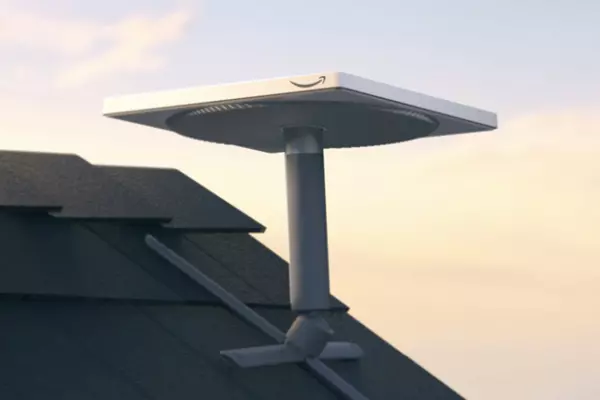Rocket Lab’s founder and chief executive Peter Beck will hold shares worth at least US$492 million (NZ$697m) after his company lists on the Nasdaq.
The New Zealander will own at least 12.2% of Rocket Lab shares after the company’s expected merger with special acquisition company (SPAC) Vector Acquisition in the third quarter of this year after a delay.
He could end up with 13.1% voting stock after redemptions.
According to an SEC filing by Vector after its annual general meeting on June 25, Beck will hold 54.5 million of the 445.9m shares of new Rocket Lab's common stock after the deal.
The filing also shows Beck will receive US$30m from redeemed stock when Rocket Lab is listed. He also sold US$10m in stock in 2019 to venture capital firm Greenspring.
When listed, if the business combination is valued at US$4.1 billion as per the implied pro forma enterprise value in March, it would leave Beck with shares worth US$492 million.
According to Forbes, NZ’s richest man Graeme Hart’s net worth is US$9.2b (NZ$13b), making him the 274th richest person in the world.
Xero founder Rod Drury’s fortune is estimated at NZ$1.95b.
After Rocket Lab’s listing the three other individuals with over a million shares will be company director and managing partner at venture capital firm DCVC Matt Ocko (10.1m), Rocket Lab chief technology officer Adam Spice (3.9m), and Rocket Lab executive vice president of operations Shaun O’Donnell (1.5m).
At the current valuation, Ocko’s 2.3% stake will be worth US$94.3m with Spice and O’Donnell receiving stakes under 1% but still worth several million dollars.
The filing also reveals Beck’s 2020 salary of US$327,000 (current exchange value NZ$462,000), Spice’s of US$309,000 (NZ$437,000) with a $123,600 (NZ$174,000) bonus, and O’Donnell’s of US$248,000 (NZ$350,000) with a US$99,280 (NZ$140,000) bonus.
Spice and O'Donnell will also receive US$5m each in redeemed stock as part of the merger deal.
“Almost 400 Rocket Lab employees have been awarded stock options or grants and the majority of these grants have a potential value in excess of NZD $500K. The majority of these team members are New Zealand based,” Rocket Lab director of communications Morgan Bailey told BusinessDesk.
Parent company
The filing also includes unaudited financials of Rocket Lab USA, the parent company that owns the NZ subsidiary.
Rocket Lab USA had revenues of US$48.3m for the year end 2019 and US$46.9m for 2020.
In the three months ended March 31, 2020, it posted $1.4m in revenue, jumping to $18.1m the March quarter of this year.
The company posted a gross loss of US$11.8m for the year end 2020, and a gross profit of $1.4m in the three months ended March 31 this year.
“We expect to continue to incur net losses for the next several years and we may not achieve or maintain profitability in the future,” the filing says.
“We believe there is a significant market opportunity for our business, and we intend to invest aggressively to capitalise on this opportunity. Because the markets for rocket launch services, mission services, satellites, and satellite components are evolving, it is difficult for us to predict our future results of operations or the limits of our market opportunity.”
The filing also notes that for the year ended Dec 31, 2020, Rocket Lab’s top five customers accounted for about 76% of its revenues.
It does not name the customers, but states: “During 2020 and 2019, approximately 46% and 25%, respectively, of our total annual revenues were derived from contracts with the US government and its agencies or from subcontracts with other US government contractors.
“In addition, during the three months ended March 31, 2021, approximately 37% of our revenues were derived from contracts with the US government and its agencies or from subcontracts with other US government contractors.”
Flight path
The filing also gives some insight into Rocket Lab’s progress at its US launch site at Nasa’s Wallops Island flight facility at Wallops Island, Virginia.
In a section commenting on government regulations, it says:
“Our licence to conduct launches at Launch Complex 2 requires certification of our flight termination system software by Nasa before flight, which has not yet been completed. We cannot provide assurance as to when or if such certification will be completed.”
The Wallops site is intended to partner with Launch Complex 1, Rocket Lab’s existing operational launch site on NZ’s Māhia Peninsula that the company says can support up to 120 launches per year.
“Upon certification of our flight termination system software by Nasa, we plan to begin launching Electron from our new launch complex at Nasa’s Wallops Flight Facility,” the document states.
“The flight termination certification process at Launch Complex 2 is ongoing and updates will be provided as they become available,” Bailey said.
This article has been updated with comment from Rocket Lab.














